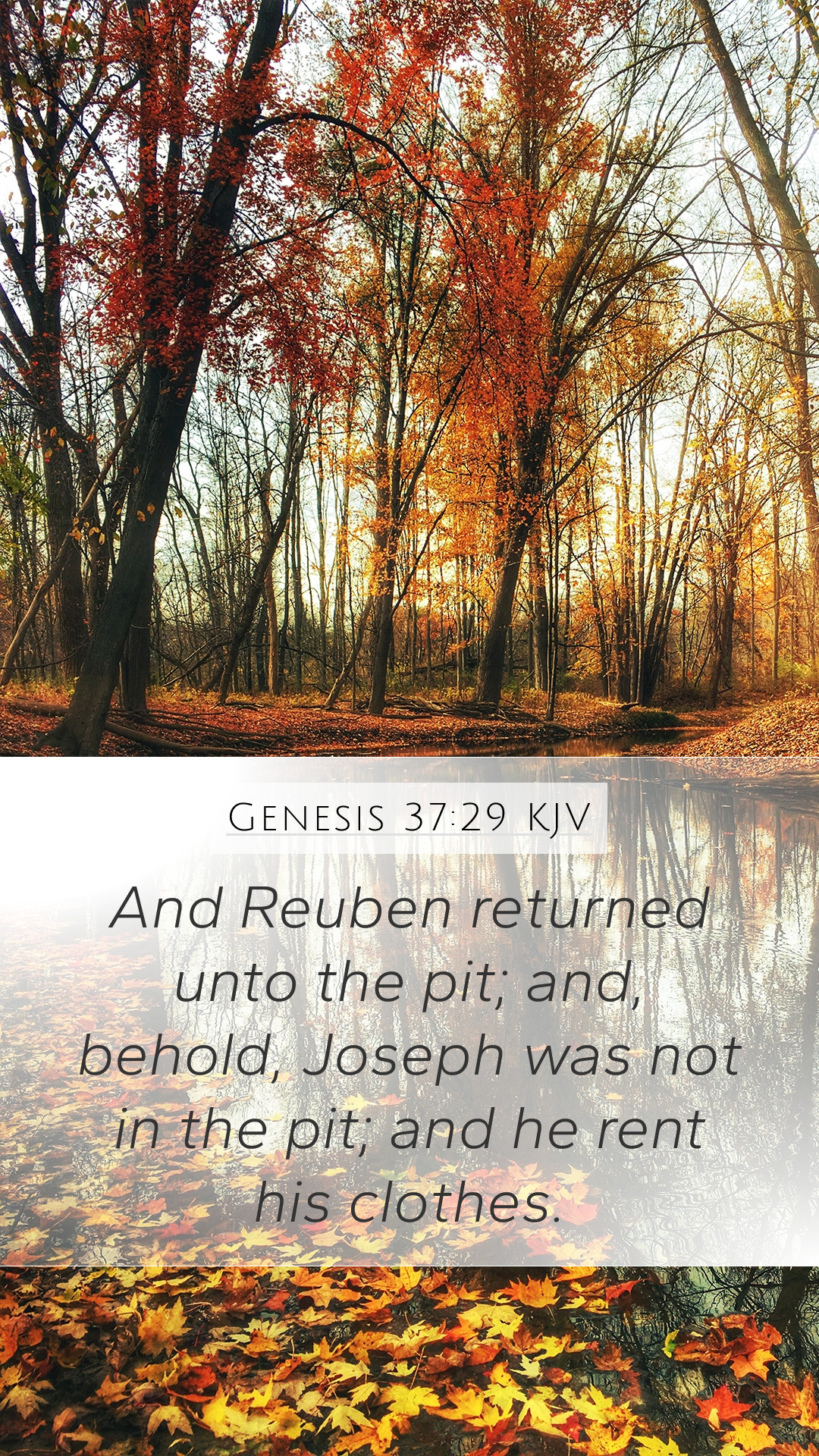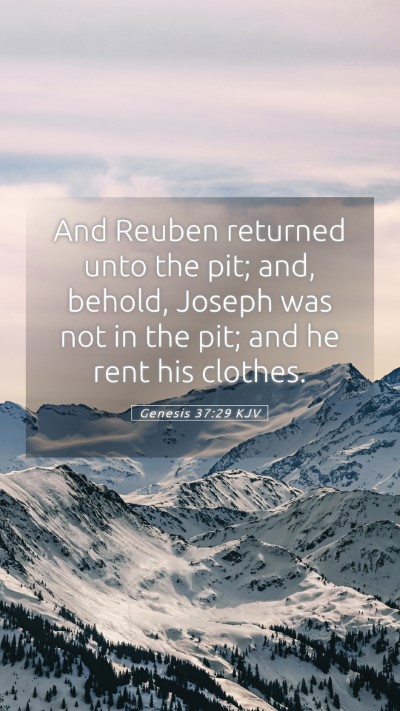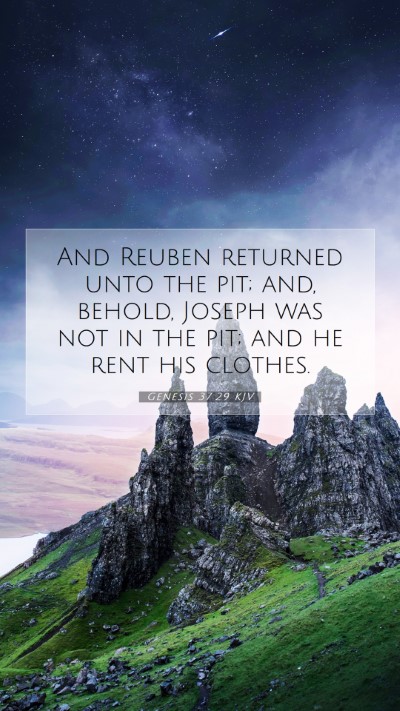Bible Verse Meaning and Commentary on Genesis 37:29
Verse: "And Reuben returned unto the pit; and, behold, Joseph was not in the pit; and he rent his clothes."
Understanding Genesis 37:29
Genesis 37:29 describes a critical moment in the narrative of Joseph, the favored son of Jacob, and the implications of his brothers' actions. The verse reveals Reuben's return to the pit where Joseph had been cast by his jealous brothers, only to discover that Joseph is no longer there. This realization brings a profound sense of despair to Reuben, leading him to tear his clothes, a traditional expression of mourning and distress.
Key Themes and Insights
- The Consequences of Jealousy: Reuben's actions reflect the deep-seated jealousy and rivalry among Joseph's brothers. Their decision to sell Joseph into slavery rather than kill him shows a complex mix of malice and an attempt to avoid guilt.
- Leadership and Responsibility: As the eldest brother, Reuben felt a significant burden of responsibility. His regret and mourning signify the weight of leadership and the consequences of poor decisions within a family dynamic.
- Betrayal and Loss: The act of tearing his clothes symbolizes not only Reuben's grief for Joseph but also a deeper sense of loss regarding the integrity of their family relationships.
- Divine Providence: Even in this moment of chaos and despair, the verse sets the stage for the unfolding of God’s plan for Joseph, which ultimately leads to his rise in Egypt and the preservation of Jacob's family during famine.
Commentary Insights
Various public domain commentaries provide deeper insights into Genesis 37:29:
- Matthew Henry: Henry emphasizes the tragedy of Reuben’s lack of foresight and the foolishness of the brothers’ actions. He notes how Reuben’s attempt to save Joseph afterwards will not absolve the guilt of their initial betrayal.
- Albert Barnes: Barnes highlights the significance of the pit as a place of despair. He also discusses the cultural implications of renting clothes as a public act of mourning, indicative of deep emotional pain and family conflict.
- Adam Clarke: Clarke delves into Reuben's feelings of remorse and his desire to protect Joseph, making the point that his return signifies not just a physical journey back to the pit but a moral and ethical confrontation with the consequences of their actions.
Bible Study Insights
This verse is fundamental for understanding the broader narrative of Joseph within the Book of Genesis. It illustrates the complexity of familial relationships and the consequences of betrayal, themes that resonate throughout Scripture.
Application of Genesis 37:29
- Understanding the emotional weight of our actions can lead to better choices in difficult situations.
- Engaging in honest conversations about jealousy and rivalry can help restore relationships.
- Recognizing the potential for divine purpose in moments of loss or difficulty can provide hope and clarity.
Cross References
- Genesis 37:19-20 - The brothers' plans against Joseph.
- Genesis 42:21 - Joseph’s brothers reflect on their past actions with remorse.
- Matthew 27:3 - Judas Iscariot's regret over betraying Jesus; similar themes of betrayal and remorse.
Conclusion
In summary, Genesis 37:29 is a pivotal verse that provides insights into the psychological and emotional turmoil within a family grappling with jealousy and betrayal. Through its various interpretations and commentaries, this verse serves as a reflection on the consequences of our actions and the complex nature of human relationships. For those engaging in bible study, understanding such verses can deepen one's Bible verse understanding and foster richer discussions in Bible study groups or online Bible study settings.


